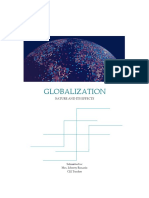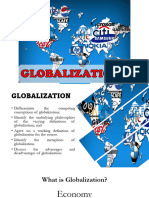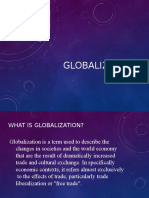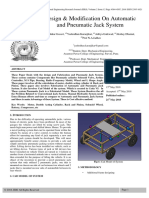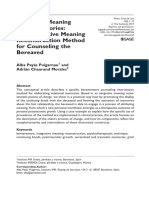0% found this document useful (0 votes)
14 views2 pagesGlobalization
Globalization allows countries to specialize in products and services where they have a competitive advantage, theoretically leading to increased efficiency and economic growth. It is driven by policies promoting free trade and international cooperation, facilitated by technological advancements in transportation and telecommunications. However, globalization has both positive effects, such as economic growth and cultural exchange, and negative effects, including economic inequality and environmental degradation.
Uploaded by
mariafranciscaCopyright
© © All Rights Reserved
We take content rights seriously. If you suspect this is your content, claim it here.
Available Formats
Download as DOCX, PDF, TXT or read online on Scribd
0% found this document useful (0 votes)
14 views2 pagesGlobalization
Globalization allows countries to specialize in products and services where they have a competitive advantage, theoretically leading to increased efficiency and economic growth. It is driven by policies promoting free trade and international cooperation, facilitated by technological advancements in transportation and telecommunications. However, globalization has both positive effects, such as economic growth and cultural exchange, and negative effects, including economic inequality and environmental degradation.
Uploaded by
mariafranciscaCopyright
© © All Rights Reserved
We take content rights seriously. If you suspect this is your content, claim it here.
Available Formats
Download as DOCX, PDF, TXT or read online on Scribd
/ 2







































